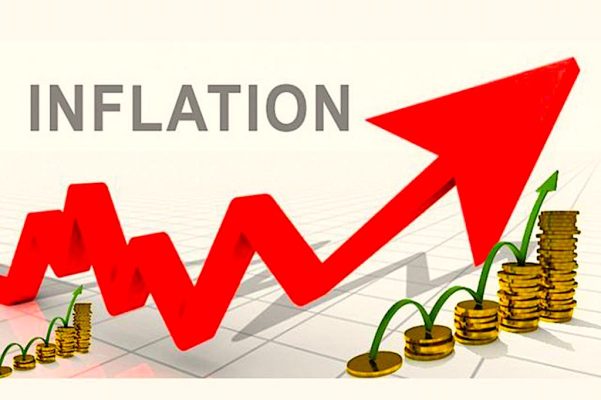By Tony Obiechina, Abuja
Nigeria’s headline Inflation rate for September 2023, on a year-on-year basis, increased to 26.72%, the National Bureau of Statistics (NBS) has said.
The development is relative to the August 2023 headline inflation rate which was 25.80%, which is an increase of 0.92% points when compared to the August 2023 headline inflation rate.
Similarly, on a year-on-year basis, the headline inflation rate was 5.94% points higher compared to the rate recorded in September 2022, which was (20.77%).
The increase in the headline index for September 2023 was attributed to the increase in some items in the basket of goods and services at the divisional level.
These increases were observed in Food and non-alcoholic Beverages (13.84%), Housing, Water, Electricity, Gas & other Fuel (4.47%), Clothing & Footwear (2.04%), Transport (1.74%), Furnishings & Household Equipment and maintenance (1.34%), Education (1.05%) and Health (0.80%).
Others are Miscellaneous Goods & Services (0.44%), Restaurants & Hotels (0.32%), Alcoholic Beverages, Tobacco & Kola (0.29%), Recreation & Culture (0.18%) and Communication (0.18%).
Likewise, on a month-over-month basis, the headline inflation rate in September 2023 stood at 2.10%, which shows that the average price level decreased by 1.08% when compared to the rate recorded in August 2023 (3.18%).
The percentage change in the average CPI for the twelve months ending September 2023 over the average of the CPI for the previous corresponding twelve-month period was 22.90%, showing a 5.47% increase compared to 17.43% recorded in September 2022.
The Food sub-index for September 2023 increased to 30.64% on a year-on-year basis, which was 7.30% points higher compared to the rate recorded in September 2022 (23.34%).
The rise in Food inflation on a year-on-year basis was attributed to increases in prices of Oil & fat, Bread & cereals, Potatoes, Yam & other Tubers, Fish, Fruit, Meat, Vegetables and Milk, Cheese, and Eggs.
However, on a month-on-month basis, the Food inflation rate in September 2023 was 2.45%.
This was 1.41% lower compared to the rate recorded in August 2023 (3.87%). The decline in Food inflation was caused by a decrease the average in prices of Potatoes, Yam and other tubers, Bread and cereals, Fruits, and Fish.
The average annual rate of Food inflation for the twelve months ending September 2023 over the previous twelve-month average was 25.65%, which was 6.29% points increase from the average annual rate of change recorded in September 2022 (19.36%).
Core inflation, which is All items less volatile farm produces and Petroleum Motor Spirit (PMS). The exclusion of the PMS is due to the deregulation of the commodity by removal of subsidy. The core inflation rate stood at 21.84% in September 2023 on a year-on-year basis.
This shows a rise of 4.35% when compared to the 17.49% recorded in September 2022. The highest increases were recorded in prices of Passenger Transport by Air, Passenger Transport by Road, Passenger Transport by Air, Medical Services, Maintenance, and repair of personal transport equipment.
On a month-on-month basis, the Core Inflation rate in the same way also increased by 2.22% in September 2023. Which is up by 0.05% compared to 2.18% in August 2022.
The average twelve-month annual inflation rate ending August 2023 over the previous twelve-month average stood at 19.55% in September 2023; this was 4.48% points higher than the 15.07% recorded in September 2022.
The Urban consumer’s inflation rate on a year-on-year basis stood at 28.68% for September 2023, this shows a 7.43% point higher compared to the 21.25% recorded in the corresponding month in 2022.
On a month-on-month basis, the Urban inflation rate grew by 2.24% in September 2023, this shows an increase of 1.05% points lower compared to 3.29% in August 2023.
The twelve-month average annual inflation rate ending September 2023 over the previous corresponding twelve-month average, Urban inflation rate was 24.10%. This was 6.16% points higher compared to the 17.94% reported in September 2022.
The Rural consumer’s sub-index in September 2023 was 24.94% on a year-on-year basis; this was 4.62% higher compared to the 20.32% recorded in August 2022.
On a month-on-month basis, the Rural sub-index in August 2023 was 1.96%, which decreased by 1.12% points compared to August 2023 (3.08%).
The twelve-month average annual inflation rate ending September 2023 over the previous corresponding twelve-month average, Rural inflation rate was 21.79%. This was 4.85% higher compared to the 16.94% recorded in September 2022.
The analyses of the states show that the all-item index for September 2023, on a year-on-year basis was highest in Kogi (32.95%), Rivers (30.63%), Lagos (30.04%), while Borno (21.05%), Jigawa (22.39%) and Benue (23.22%) recorded the slowest rise in headline inflation. READ ALSO:
- Osimhen Allegedly Punches Journalist In Turkey
- Tinubu Appoints Board Chairpersons, CEOs For 42 Agencies + Full List
- Francisca Ordega Joins Saudi Club Al-Ittihad
- Lawyers boycott courts to protest alleged murder of popular colleague
- Wike mourns as ex-FCT Minister, General Useni passes away
On a month-on-month basis, September 2023 recorded the highest increases in Taraba (3.39%), Bauchi (3.38%), Niger (3.28%), while Borno (0.71%), Ekiti (1.05%) and Benue (1.13%) recorded the slowest rise on month-on-month inflation.
State-level analyses of the food index in September 2023, on a year-on-year basis, showed the highest increases in Kogi (39.37%), Rivers (35.95%) and Lagos (35.66%), while Jigawa (23.41%), Borno (25.29%) and Sokoto (25.38%) recorded the slowest rise.
On a month-on-month basis, however, September 2023 Food inflation was highest in Akwa Ibom (4.23%), Niger (4.19%) and Ebonyi (3.74%), while Cross River (0.31%), Borno (0.62%) and Bayelsa (0.73%) recorded the slowest rise.


